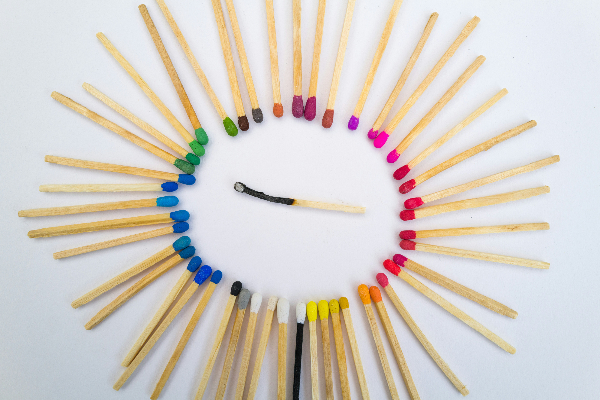5 Ways to Deal with Setbacks

Life has some interesting twists, and sometimes things don’t go the way we expect. After a failure, we might feel lost, embarrassed, scared, upset, or even numb… we might not feel anything at all! At my last post, Perseverance in Solving Problems, I discussed how perseverance, grit and tenacity could be addressed in the classroom by creating a climate that supports challenging goals where mistakes are seen as normal and by developing a growth mindset in students. Today, I want to focus on some specific strategies that can be used to develop a growth mindset and deal with setbacks in your own journey or when working with students.
1. Identify how you feel. When we are dealing with difficult situations, we might feel a mixture of emotions. Being able to name these emotions, without judging if they are good or bad, will help you decrease their intensity and develop self-awareness. According to Damasio (2005), “far from interfering with rationality, the absence of emotion and feeling can break down rationality and make wise decisions making almost impossible”. Emotions contain information that can help us think, and when acknowledged, take a more objective stand in the situation we are facing so we can make better decisions.
2. Don’t be a victim. When we face setbacks and struggles, we might feel like we are victims (of discrimination, an unfair teacher, a bureaucratic system, etc.). When we feel this way, we tend to blame others for the difficulties we are facing. This mindset takes the individual’s power away, making it hard to change things and move forward. Moving away from a victim mentality starts with self-awareness, being able to connect with our emotions, so we can manage our behavior (instead of just reacting) and move into a position where we can identify new or alternative solutions. Another way to avoid a victim mentality is to take setbacks as part of learning. Embrace challenge as part of life and learning!
3. Identify the lesson that you can learn from it. There is always something that we can learn, even from difficult situations or when we think “everything is lost”. This means taking the time to analyze what happened, learn from mistakes and find ways to make them less likely to happen in the future. Although this can (often) be a hard process, the lessons learned when dealing with setbacks are generally the ones that stay with us the longest. When you are dealing with a challenge or helping students overcome a difficult situation, ask the question “what can I learn from it?”.
4. Remember your strengths and your goals. Experiencing setbacks can make you question your self-worth, your goals, and the things that keep you motivated to keep going. Being able to identify your strengths, and how you can use them to overcome the challenge and find new solutions, will be key to reframe the situation positively and open up space for alternatives. Learning from setbacks often means changing your behaviors in ways that will lead to success, but not giving up on your goals! Having clarity on your goals will help you persevere, even when you are faced with challenges.
5. Find social support. Numerous studies indicate that social support is exceptionally important for maintaining good physical and mental health, and may enhance individuals’ resilience to stress. Talk with a friend, coach or mentor about your experience. Others can give you emotional support (someone who can listen when you are upset or scared), remind you of your strengths or offer some strategies that have worked for them in the past. So don’t be shy about asking for help!
According to Carol Dweck, a growth mindset creates a love for learning and a resilience that is essential for great accomplishments. Having a growth mindset means that we take on challenges wholeheartedly, learn from our setbacks and try again. We won’t be able to avoid difficult situations, but we can be prepared with strategies when they strike!
Subscribe to the HEART in Mind Newsletter
Research-Based Strategies for your SEL Toolbox









